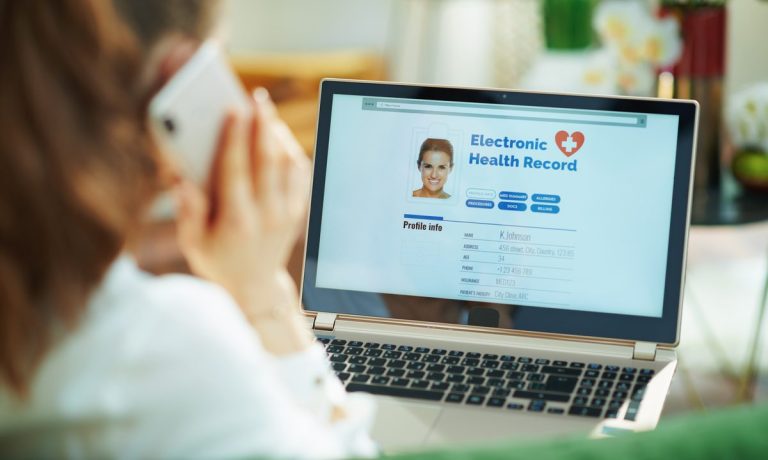Electronic Health Records at the Heart of Public-Private Digital Identity Push

Electronic health records containing some of the most guarded personal data about people are making headlines again as a consortium of players join forces to create a universal single sign-in, allowing patients secure access to unified health data via digital identity.
Coming out of the ViVE health technology conference happening this week in Miami Beach, the effort is led by consumer-directed healthcare advocacy group the CARIN Alliance, working together with the Department of Health and Human Services (HHS) and other stakeholders.
On Tuesday (Mar. 8), Politico reported that HHS “is working with several health systems, insurers and health tech groups to roll out a single way for patients to log in and access their medical records across multiple systems. The launch later this month will set up a test environment for integrating the technology, said Ryan Howells, principal at Leavitt Partners and program manager at the CARIN Alliance, which is spearheading the efforts.”
CARIN is working with the Office of the National Coordinator for Health Information Technology and the Centers for Medicare and Medicaid Services (CMS), which will act as “government observers.”
See also: athenahealth Deal Shows Promise and Potential of Connected Health
The first objective is proof of concept, under which organizations using the technology “would allow patients who have proved their identity to access their health information from different systems in a single step,” per Politico. Patients could then select a credential service provider from an approved list of companies under HHS’ “XMS external user management system.”
“Without a national patient identifier or a standardized verification of a person’s identity, it’s more difficult for health care systems to share data and match patients with their records, particularly those with the same names. The identity-proofing system would allow health systems to verify that patients requesting data are who they say they are and match patients’ records with data from other systems, enabling data to flow,” Politico reported.
Related: Zoom, Cerner Beta-Testing Integration of Zoom With Electronic Health Records
Approximately 20 healthcare organizations, including Kaiser Permanente, Providence, health plans like CVS Health and Cambia and credential service providers like ID.me are participating in the effort.
A Connected Economy Health Framework
According to CARIN presentation materials, this joins with efforts that include the Sequoia Project — an independent advocacy and policy group that has been working on bringing down interoperability barriers in healthcare information exchange as part of the Trusted Exchange Framework and Common Agreement (TEFCA).
However, obstacles to secure health information exchange are proving difficult to overcome. For instance, Healthcare IT News reported that, “While TEFCA is structured to create national connectivity of electronic health records, it can’t perform unless a network of provider organizations becomes a part of the Qualified Health Information Networks, or QHINs, which facilitate data sharing. Unfortunately, many providers still aren’t familiar with the new agreement.”
Read more: Oracle Snags Cerner for $28.3B
Modern Healthcare reported that the aim is for “patients to use a credentialing service that’s been certified by an independent third-party and partnered with HHS’s external user management system. That credentialing service ‘authenticates’ the patient, who’s now able to access data from participating providers and payers.”
As the report noted, “That relies on providers, health plans and other organizations trusting that the credentialing service has adequately established that the patient is who they say they are.”
CARIN said it will issue a public report on how it worked by the end of the year.
See also: New Health Coalition Pushes For Digital COVID Vaccination Records